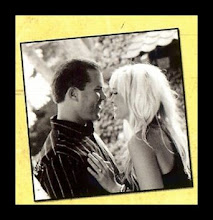
Math by far was my worst subject in school. I struggle even helping Austin at a third grade level sometimes. I met a friend a couple months ago who has a daughter who is Austin's age and a son who is Faith's age. I had no idea that she would be so much help to me. She is a math major and teaches math at APU. She now is a homeschool mom and the author of Math FUNdamentals and many other math books.
Below is a post from her website:
www.mathfundamentals.net
Fear of the LORD is the beginning of wisdom. Knowledge of the Holy One results in understanding.
Proverbs 9:10
Wisdom is the principal thing; Therefore get wisdom. And in all your getting, get understanding.
Proverbs 4:7
Math is everywhere, math is useful, and yes, math can and should be FUN! We believe that mathematics is a process, a way of thinking. Yes, it involves arithmetic, computational skills and memorizing math facts, but ultimately, mathematics is learning to think logically and to solve problems! The primary goal for learning mathematics should be to help our children become confident and successful problem solvers. The main objective should be to help our children learn how to apply their skills to solve problems that arise in the home and in the work place. Children, as well as adults, tend to learn more and retain information longer when they are given the opportunity to be active participants in their learning, to construct their own meanings and to invent their own procedures.
A balanced approach to learning mathematics involves three components: problem solving, conceptual understanding and procedural knowledge. When learning a new concept or skill, children should always begin at the concrete level. This means the abstract symbols should be explained with the use of concrete models and manipulatives, such as buttons, beans, spoons, and Cuisenaire rods and then with drawings and diagrams, before moving on to symbolic notation and memorizing procedures.
They should see that mathematics is important and useful. This is accomplished by introducing and reinforcing concepts and problem solving through the use of everyday experiences such as cooking, shopping, and gardening. If children are given concrete models to work with and are given a sufficient amount of time, they often solve very complex and complicated problems on their own. Children tend to use their prior knowledge and experiences, with the aid of manipulatives, to help make sense of new problems or situations.
Children should also think math is fun! This of course can be accomplished by reviewing concepts and skills through the use of games. A fun and meaningful approach to learning mathematics can easily be accomplished by using the Math FUNdamentals resource books




















No comments:
Post a Comment